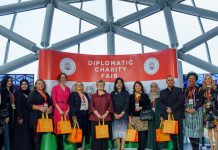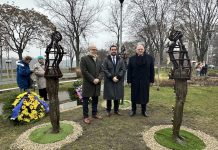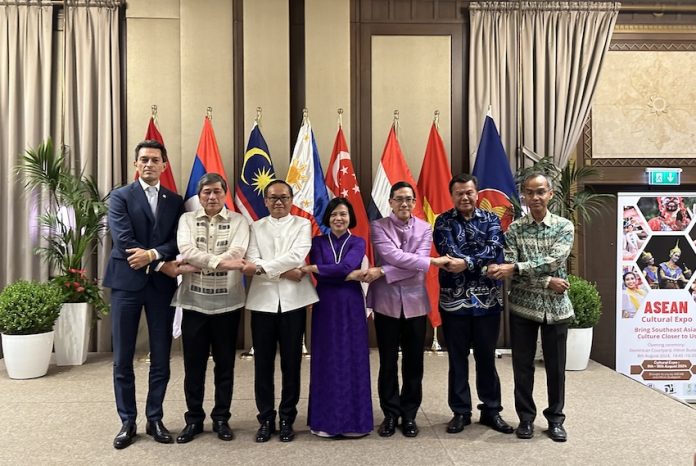„Enhancing Connectivity & Resilience of ASEAN Community”
Edited by Anna Popper

The Association of Southeast Asian Nations (ASEAN) was established on 8 August 1967 in Bangkok, Thailand, with the signing of the ASEAN Declaration (Bangkok Declaration) by the Founding Fathers of ASEAN, the Foreign Ministers of Indonesia, Malaysia, the Philippines, Singapore and Thailand.
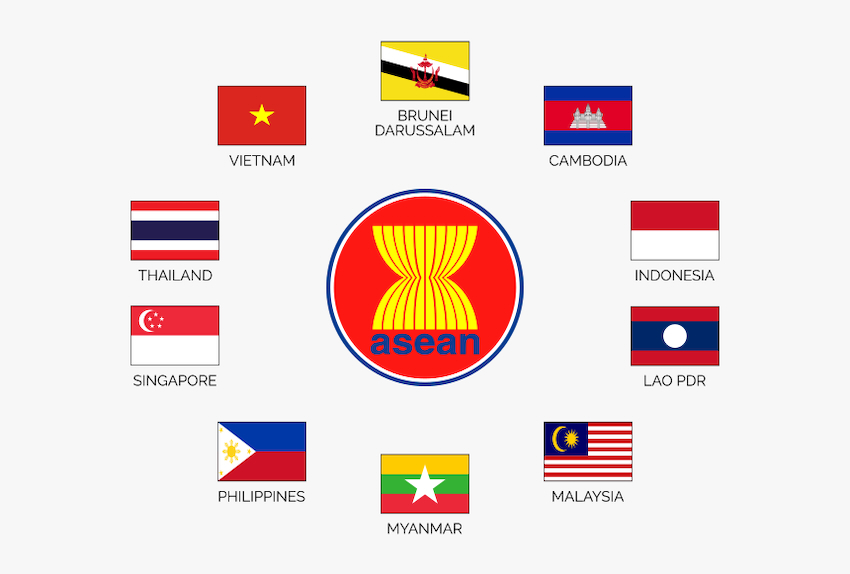
The five-article founding document proclaimed the establishment of ASEAN to promote regional cooperation. Its aims included fostering collaboration in economic, social, cultural, technical, and educational fields, as well as promoting peace and stability through respect for justice, the rule of law, and adherence to the UN Charter. It also declared ASEAN open to all Southeast Asian states committed to these goals, representing the collective will to unite in friendship and cooperation to ensure peace, freedom and prosperity for their peoples and future generations.
Brunei Darussalam joined ASEAN in 1984, followed by Viet Nam in 1995, the Lao PDR and Myanmar in 1997, and Cambodia in 1999, making up what is today the ten Member States of ASEAN.
On 8 August 2024, the embassies of seven ASEAN member countries in Hungary: Malaysia, Indonesia, the Philippines, Viet Nam, Laos, Thailand, and Singapore hosted ASEAN Day – which is celebrated annually – in cooperation with the Hilton Budapest Hotel, marking the founding of ASEAN 57 years ago.
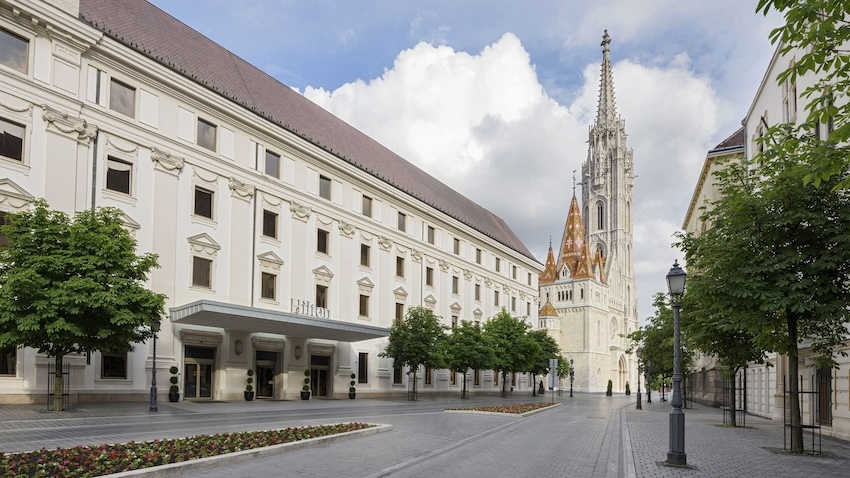
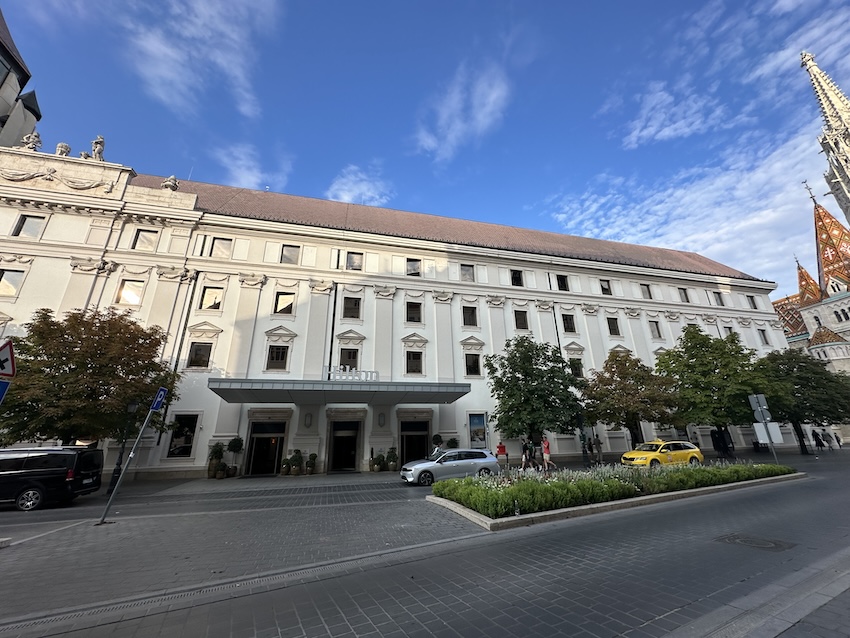
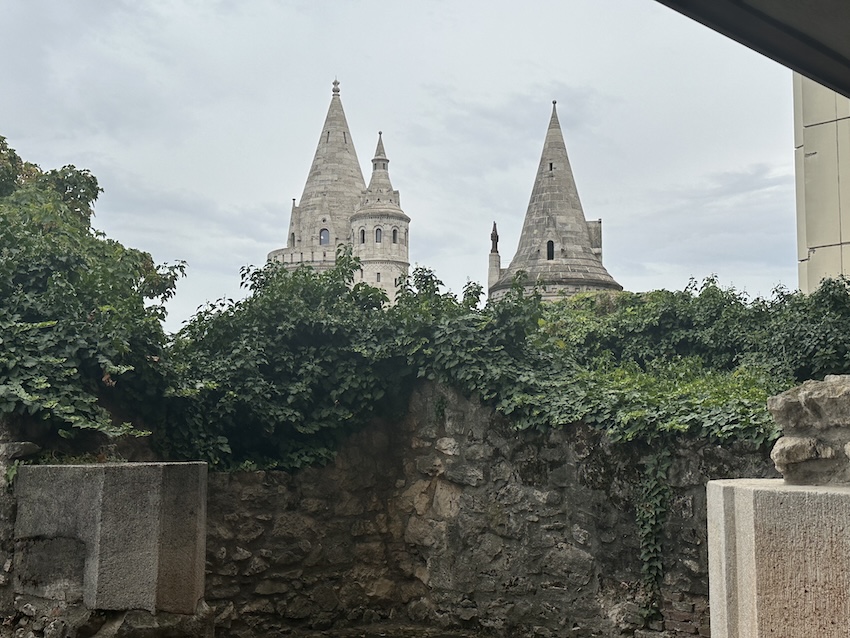
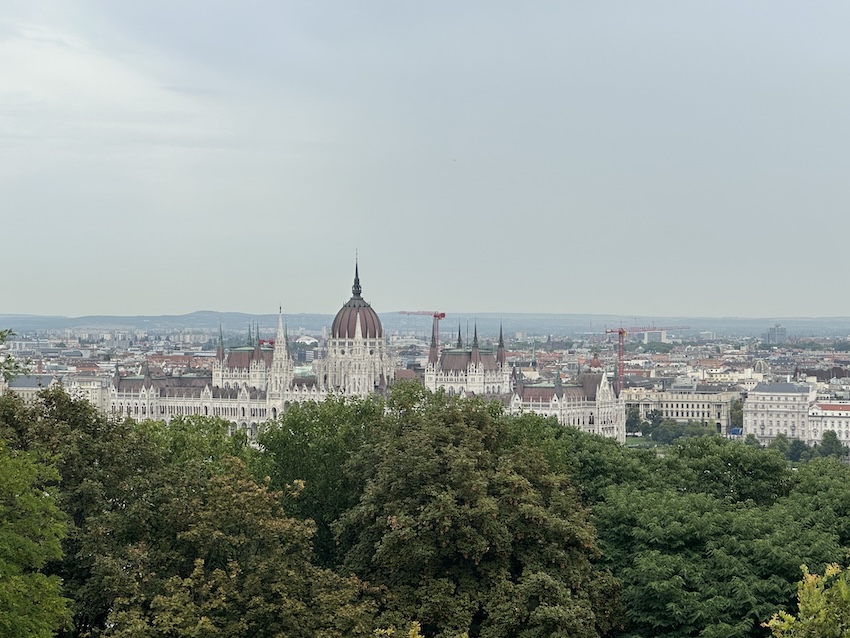
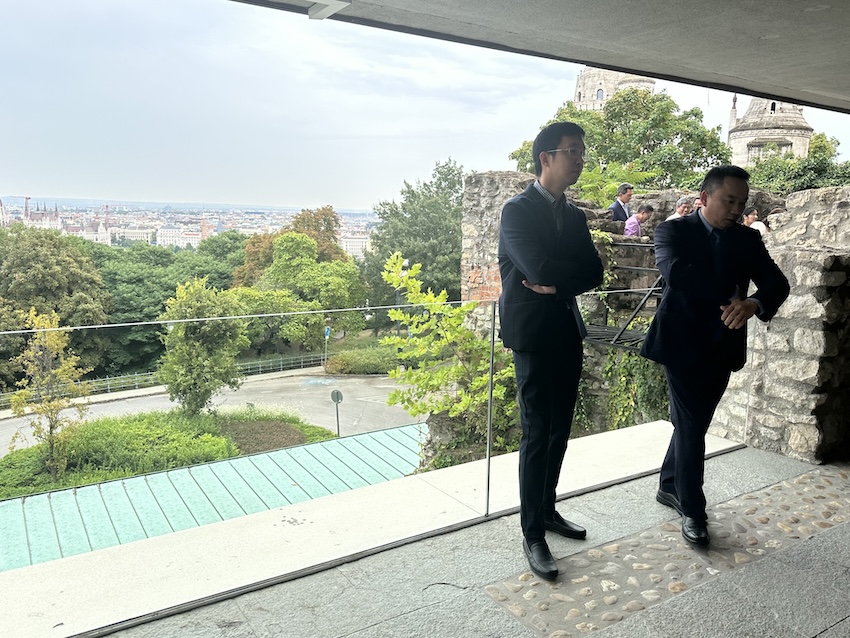
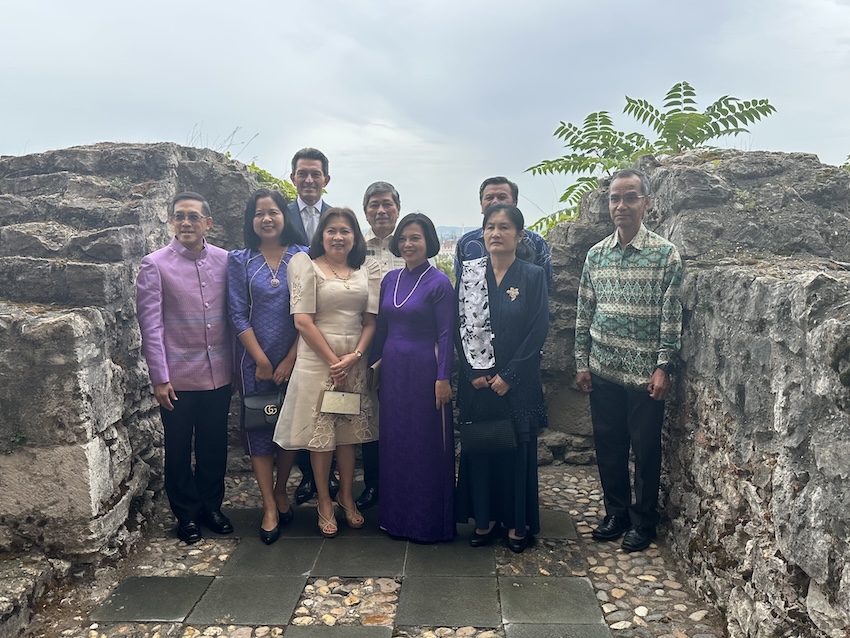
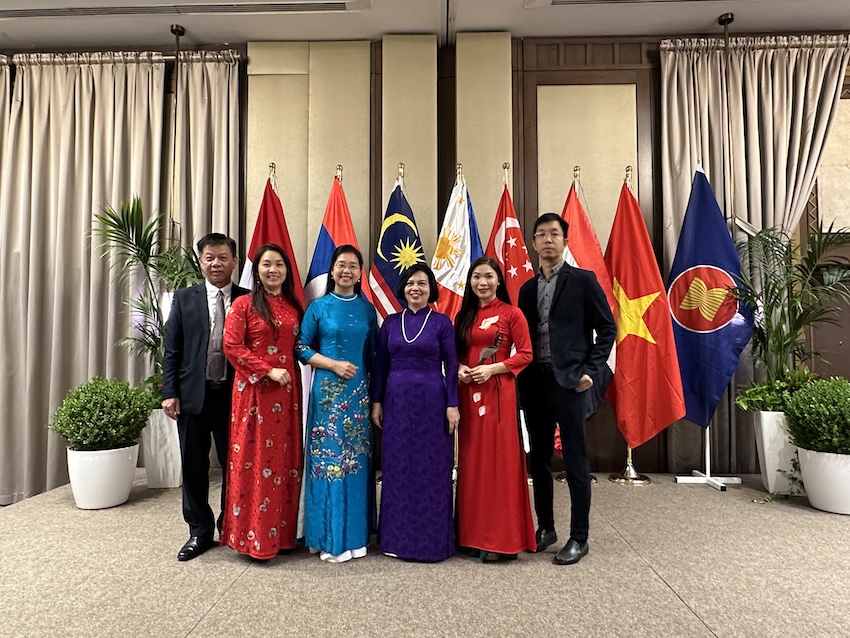
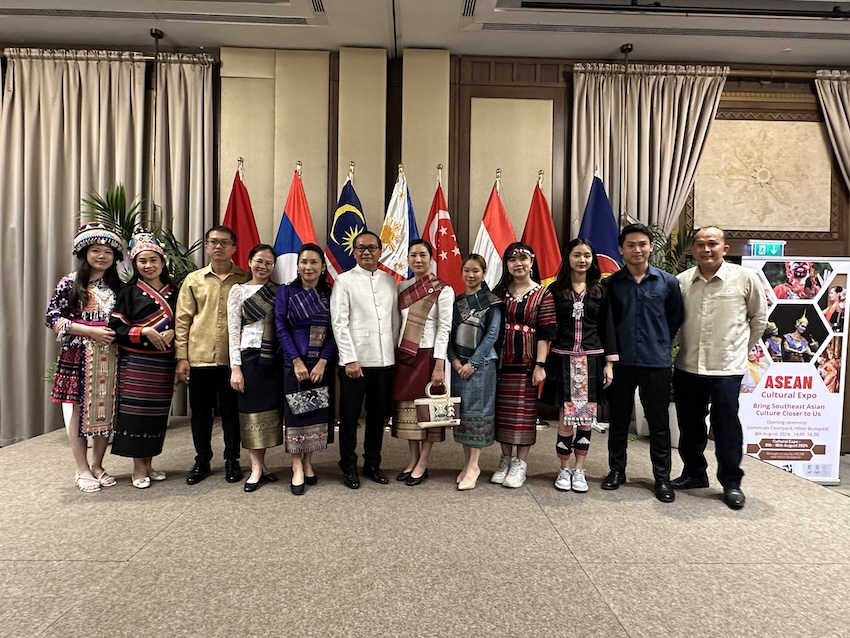
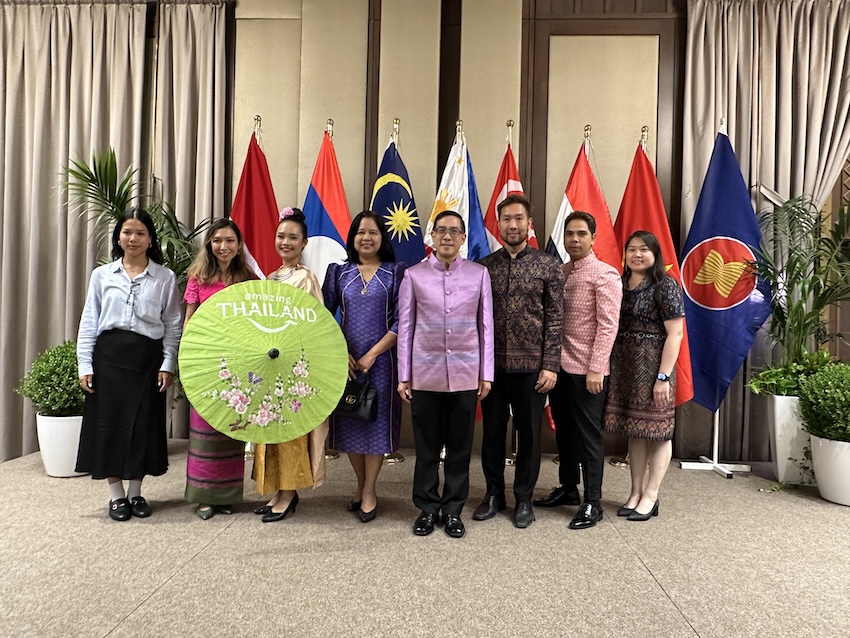
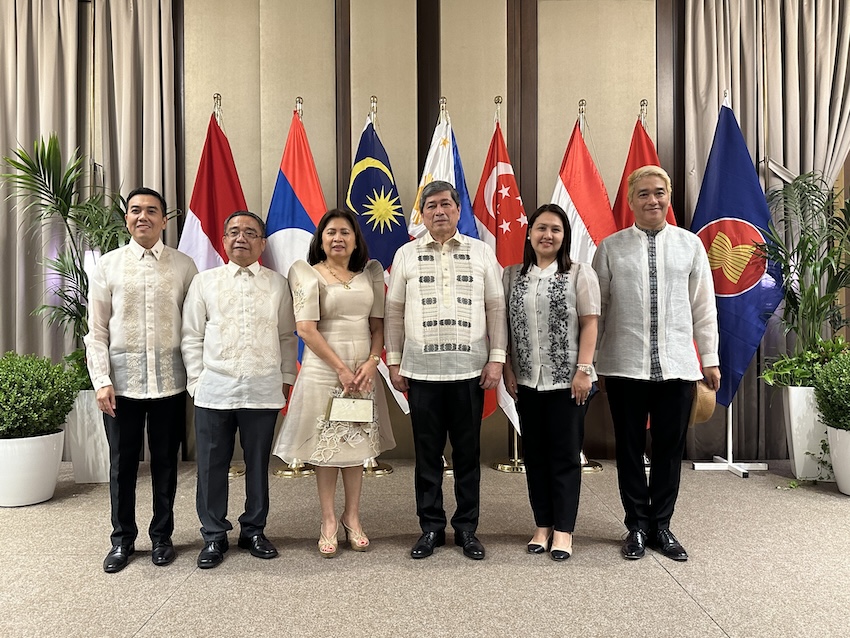
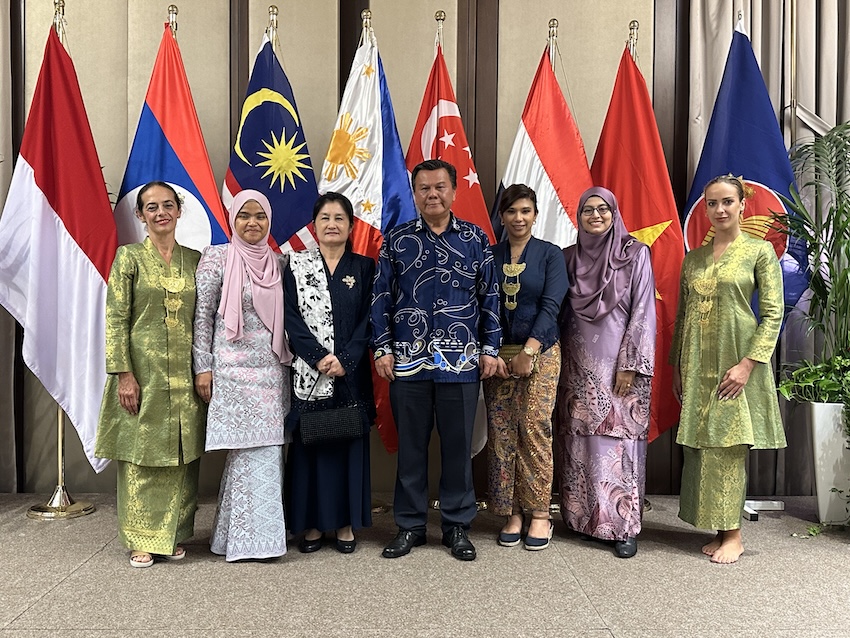
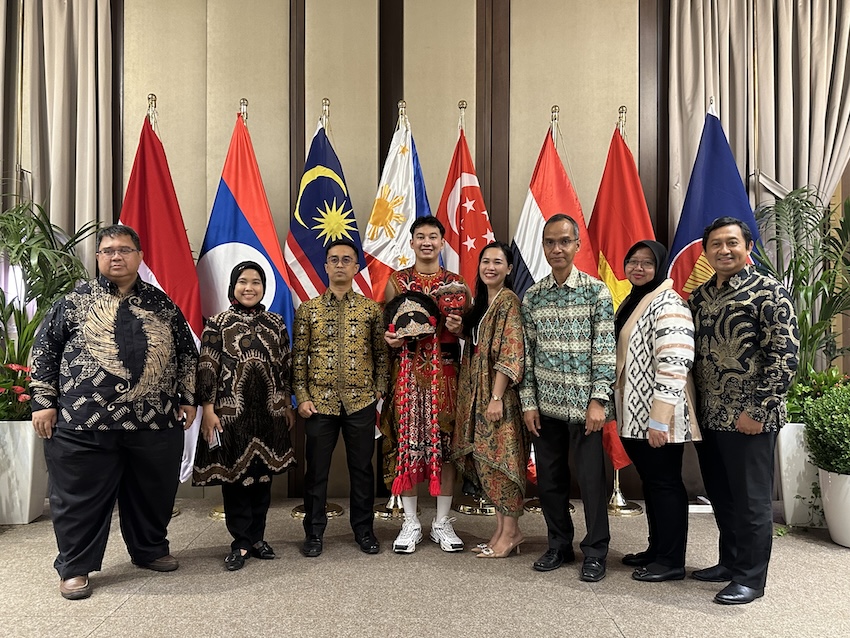
Theme of the 57th ASEAN Day is: „Enhancing Connectivity & Resilience of ASEAN Community”, focusing on historical milestones and future aspirations such as sustainable development, digital transformation and resilient economies. ASEAN Day symbolizes the collective commitment to a cohesive and prosperous region, reinforcing the bonds that unite Southeast Asia in a dynamic and evolving global landscape.
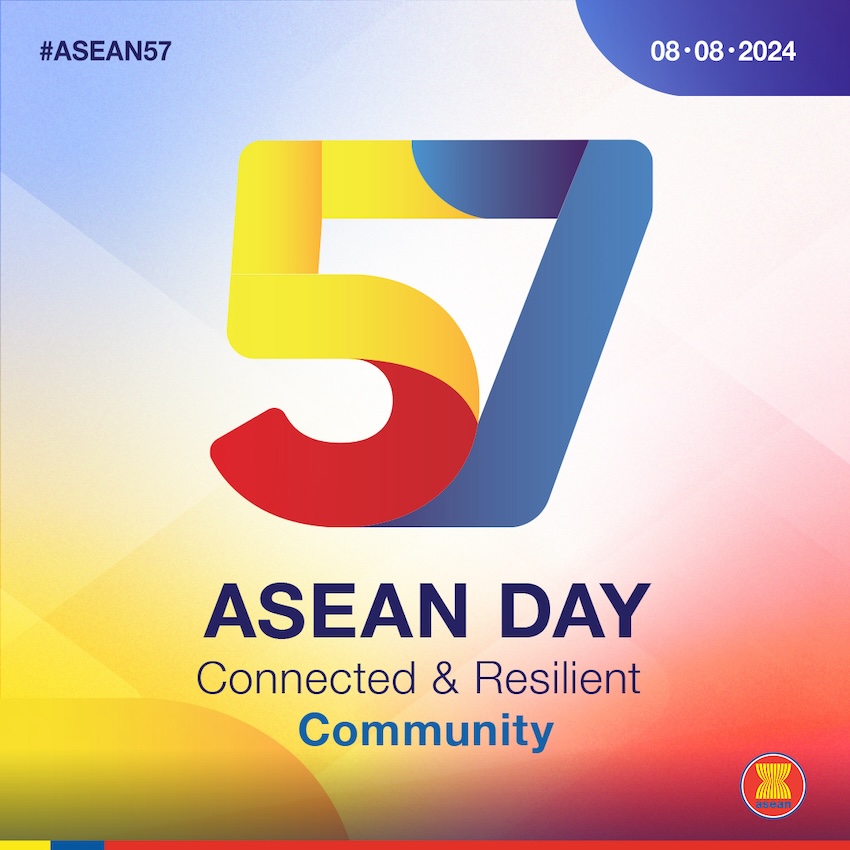
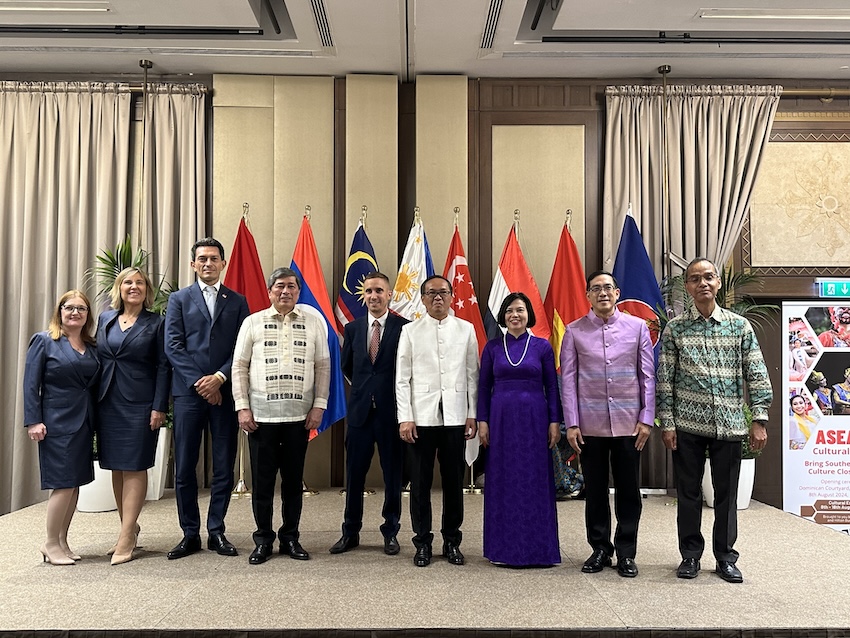
The guests of the event, gathered in the impressive event hall of the Hilton Budapest Hotel, were warmly welcomed by the speakers on behalf of the host, Ms. Patricia Dombi, Commercial Director and the organisers from Hilton Budapest.



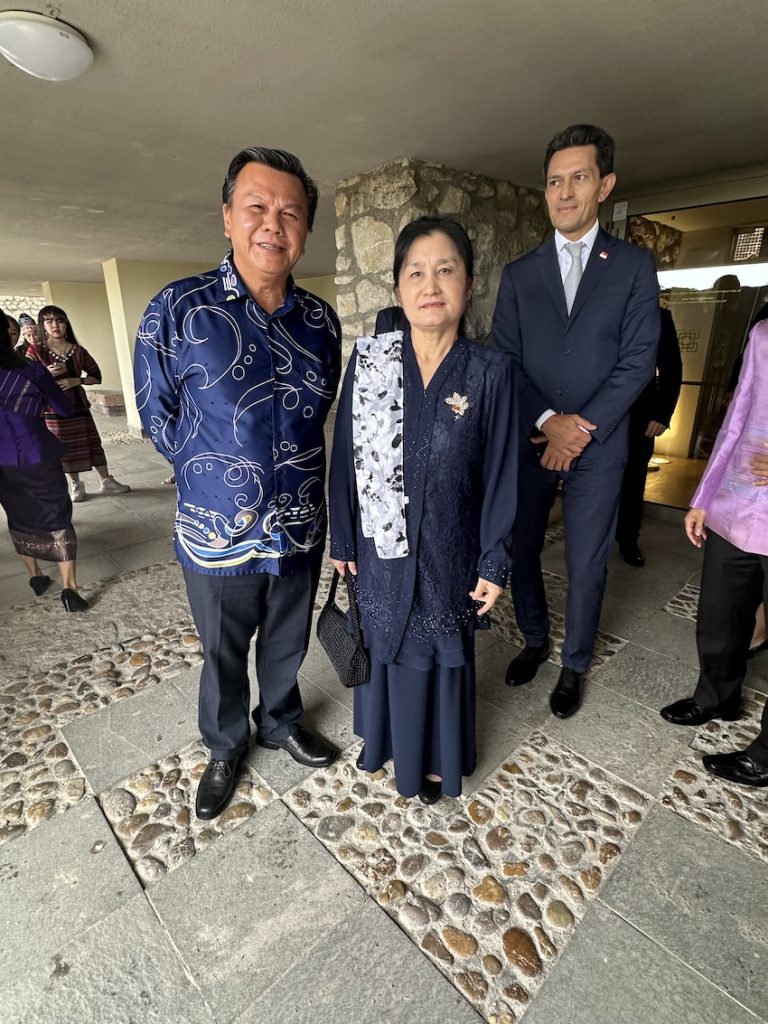
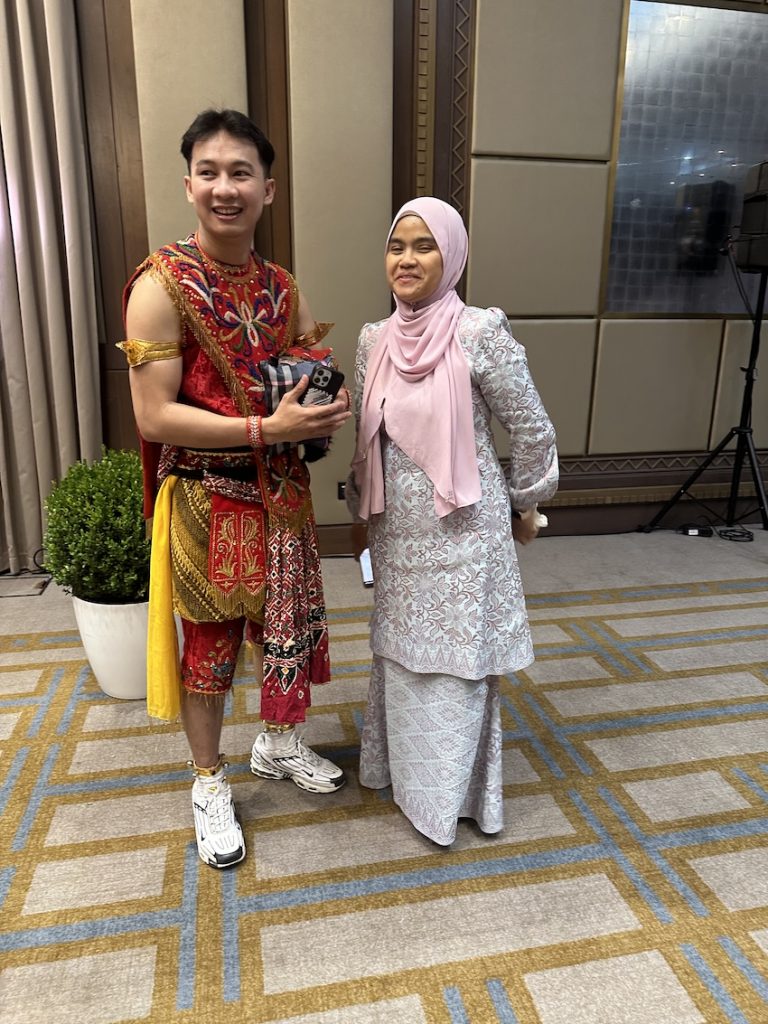
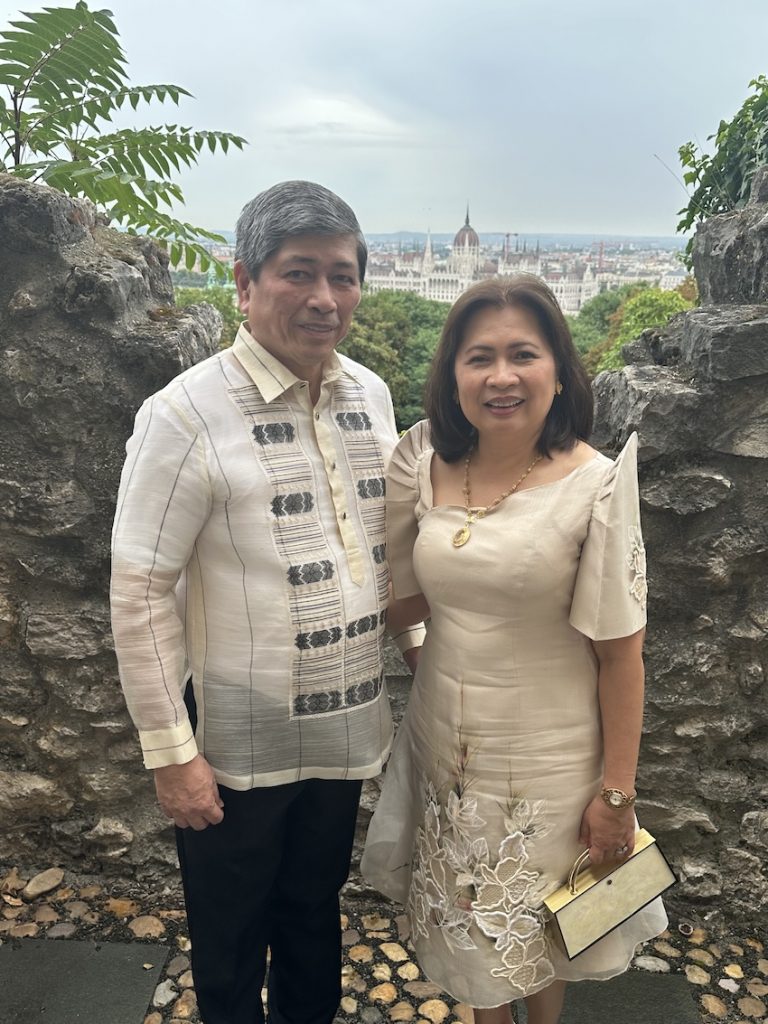
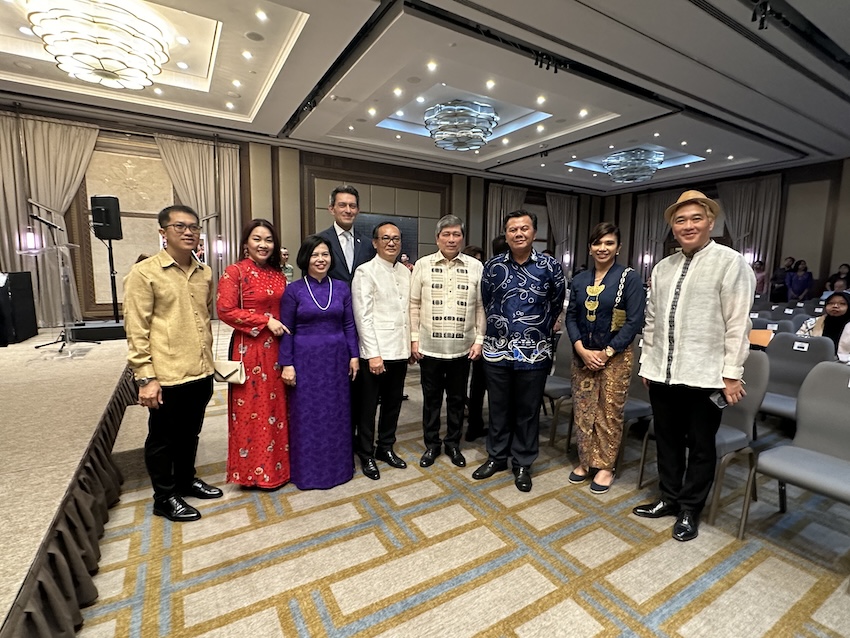
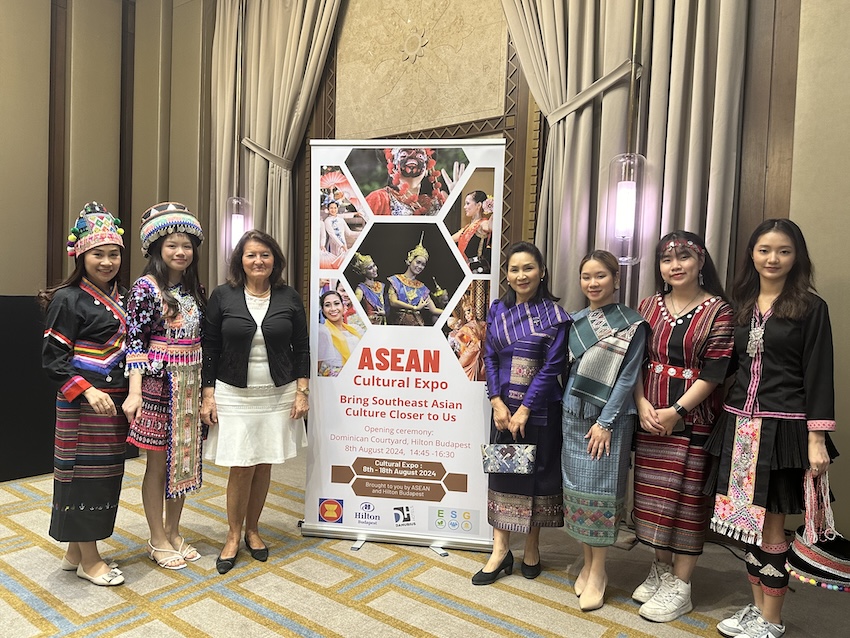
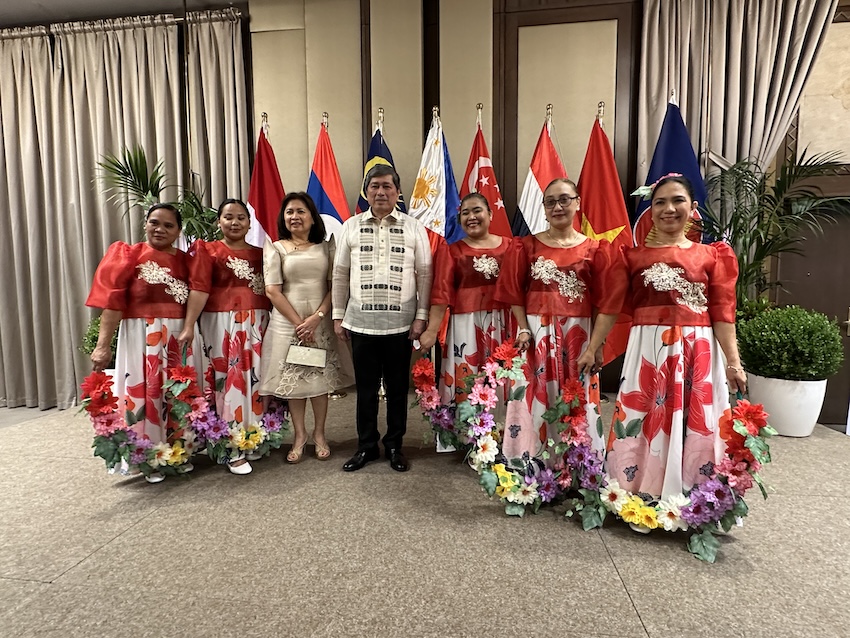
The celebration was officially opened by the Ambassador of the Lao People’s Democratic Republic, H.E. Mr. Khamphone Vongsanty, who serves as the ASEAN Chair for 2024 in Hungary, in the presence of H.E. Frank R. Cimafranca, Ambassador of the Philippines, H.E. Francisco Munis, Ambassador of Malaysia, H.E. Mrs. Nguyen Thi Bich Thao, Ambassador of the Socialist Republic of Viet Nam, H.E. Mr. A. H. Dimas Wahab, Ambassador of Indonesia, H.E. Mr. Phrommes Bhaholpolbhayuhasena, Ambassador of the Kingdom of Thailand and Mr. Bálint Széchenyi, Honorary Consul of Singapore, representing the ASEAN countries.




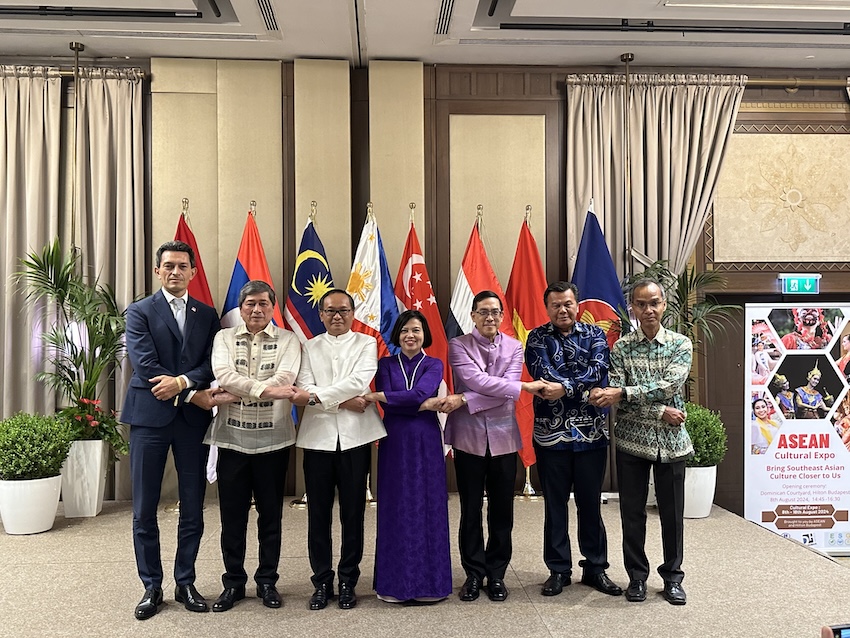
It was followed by the address of the Guest of Honour, Mr. Ádám Stifter, Deputy Secretary of State for the Development of Eastern Relations, Ministry of Foreign Affairs and Trade of Hungary:
“Excellencies, Distinguished Guests,

I truly appreciate the invitation of the Embassy of the Lao People’s Democratic Republic on the solemn occasion of the 57th Anniversary of ASEAN’s founding.
Allow me to take this opportunity to congratulate ASEAN on its achievements over the past nearly six decades and to wish you every success in future endeavours aiming at further strengthening regional integration and deepening cooperation with friendly countries, including Hungary. I believe that ASEAN plays a pivotal role in Southeast Asia in maintaining the peace and stability in the region.
Hungary follows the developments of ASEAN’s integration with great interest. In recent years, the economic and geopolitical influence of ASEAN has expanded, on a trajectory that is expected to continue in the future, with the region being anticipated to be the world’s fourth-largest economic bloc by 2030.
I believe that ASEAN integration will contribute to the political and economic development of the region and the well-being of the citizens of ASEAN countries. I can assure you that Hungary continues to support the principle of ASEAN-centrality and its efforts to build a rules-based regional architecture.
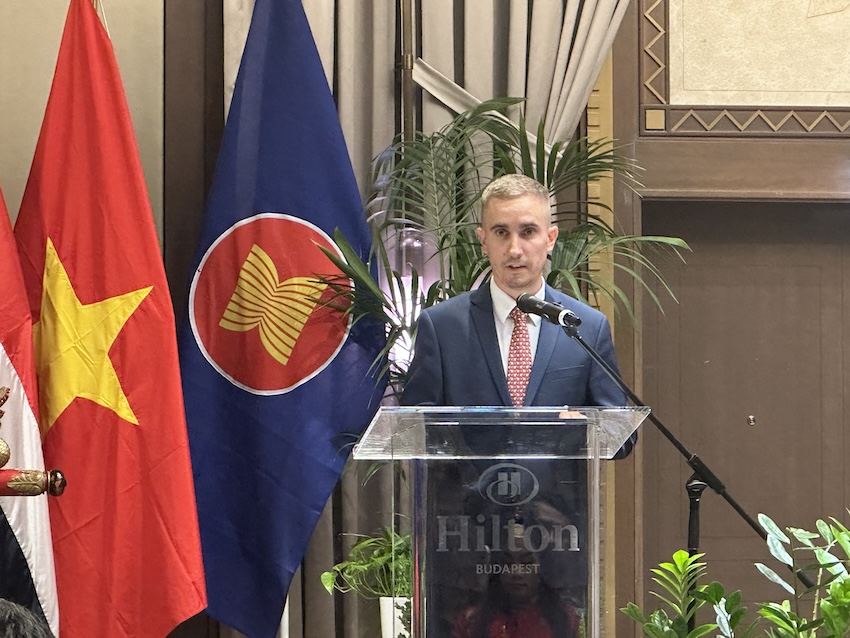
Hungary cooperates closely with the Southeast Asian region, taking up a pragmatic approach with a strong emphasis on connectivity and mutual respect, which is particularly significant given the current global and regional challenges. I am pleased to note that – despite the geographical distance – our relations with ASEAN countries are prosperous and free from political disputes.
Hungary’s commitment to deepening cooperation with ASEAN is well reflected in the frequent interactions and excellent high-level dialogue between our countries. Since the launch of Hungary’s Eastern Opening policy, we have greatly expanded our diplomatic presence in ASEAN countries; the opening of our Embassy in Vientiane this June is another testament of our devotion to strengthening relations with the region.
Hungary is committed to enhancing its contractual ties with ASEAN. During the recent visit of Minister Péter Szijjártó to Laos, we announced Hungary’s intent to join the ASEAN Treaty of Amity and Cooperation in Southeast Asia (TAC). As the first candidate among the EU members states to join from the Central and Eastern European region, we wish to strengthen connectivity between our regions and we are determined to bring added values to TAC.
Developing economic relations is an important element of Hungary’s foreign policy. Over the past decade, trade between our country and ASEAN countries has grown steadily and dynamically, reaching nearly $4 billion in 2022 and 2023.
I am delighted to note that Hungary had concluded economic cooperation agreements with many of our ASEAN partners. To promote bilateral trade and investment, we have established Joint Economic Committees with Vietnam, Cambodia, Thailand, Indonesia, Malaysia and the Philippines.
We count on ASEAN’s support in our efforts to develop investment and trade relations. As a member of the European Union, Hungary can serve as a bridge and logistics hub for goods from the region. Southeast Asia has been a major economic powerhouse for decades and is projected to remain a development centre, so cooperation with ASEAN remains beneficial for the EU.
Hungary has supported and will continue to promote the signing of many Partnership and Cooperation Agreements, Free Trade Agreements and Investment Protection Agreements between the EU and several ASEAN countries.

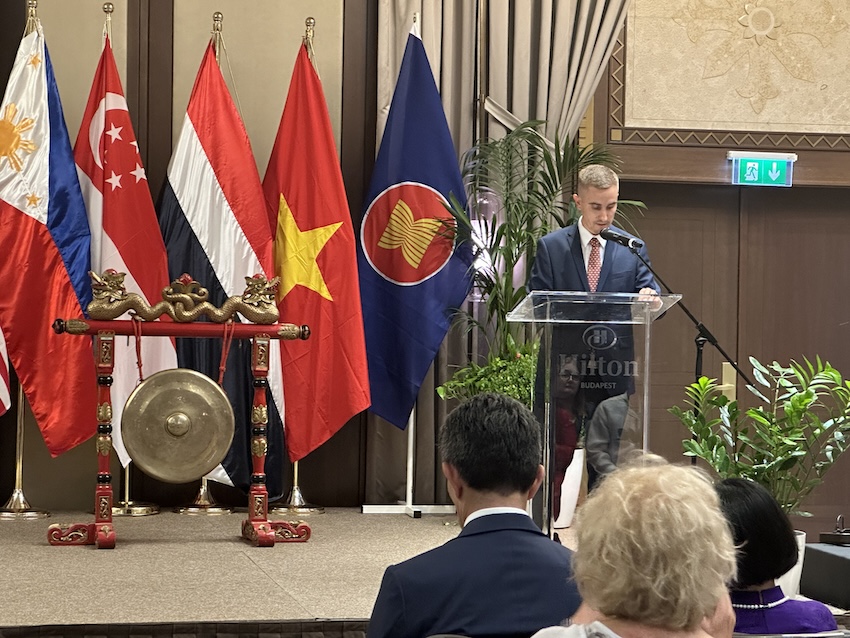
During the ongoing Hungarian Presidency of the European Council, we continue to advocate for the facilitation of free trade mechanisms and the elimination of trade barriers for the flow of goods, services and capital originating from the ASEAN members. Our pragmatic stance on the need for connectivity ensures that openness for peace and dialogue will play a key role during the Hungarian EU Council Presidency. These are not only core values of the Hungarian foreign policy, but also resonate with the shared values of ASEAN, serving as a solid foundation for a deeper strategic partnership and economic engagement between Europe and Southeast Asia.

Education is another cornerstone of our relations. Nowadays all ten ASEAN member states participate in the Stipendium Hungaricum programme. I was pleased to learn that 452 students from the ASEAN region have been accepted for the 2023/24 academic year and that 3243 applicants have applied for the courses starting in 2024/25.
I am convinced that in today’s rapidly changing world, Hungary needs reliable and stable partners such as the Southeast Asian region, a partner with whom we can cooperate closely on the solid basis of mutual respect and shared interests. Hungary remains committed to maintaining its dynamically evolving cooperation with ASEAN partners. On that note, let me express once again my sincere best wishes and congratulations on the occasion of the 57th anniversary of the establishment of ASEAN.”
Vibrant Cultural Show
The opening event featured a captivating cultural show that represented the abundant diversity of ASEAN countries through authentic music, mesmerizing dance performances, and enchanting ancient traditions, all of which were highly appreciated by the audience.
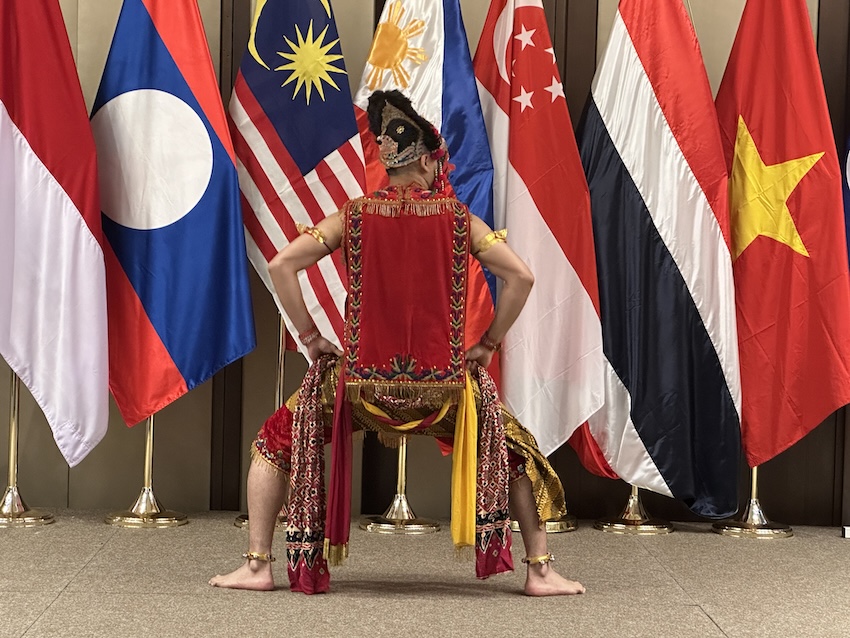
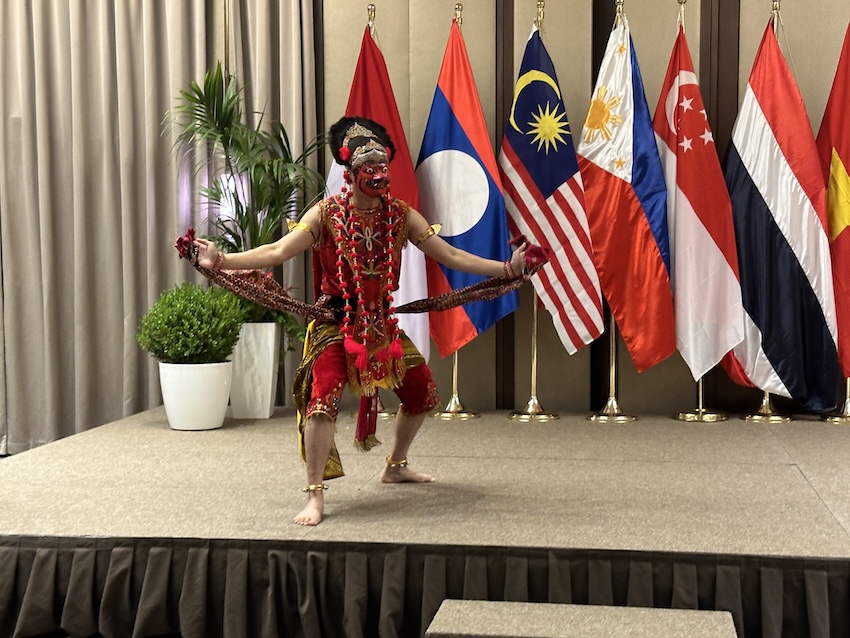
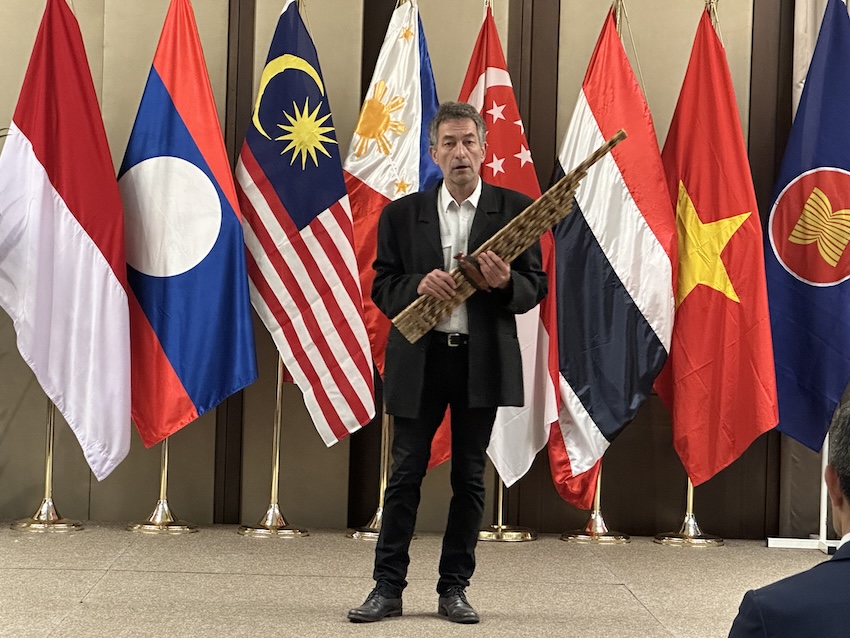
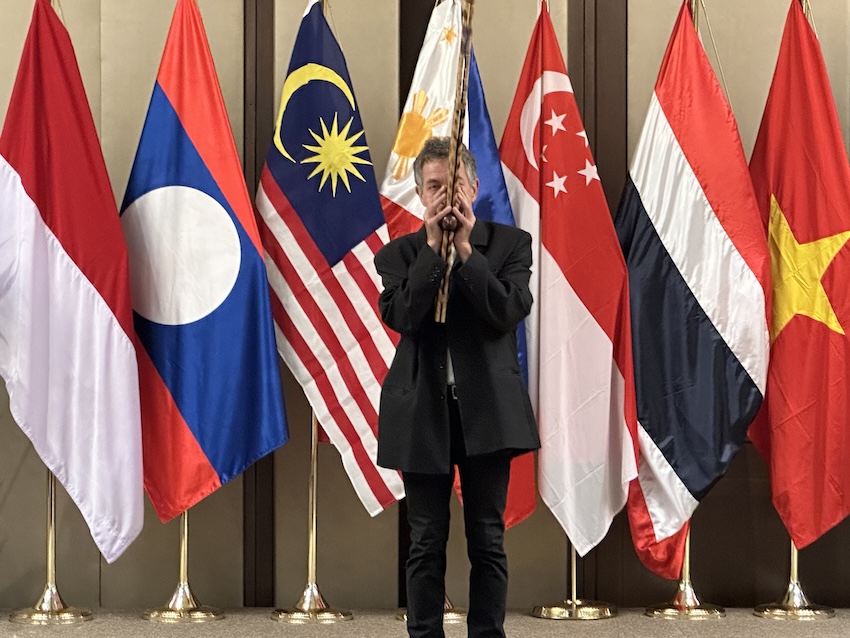
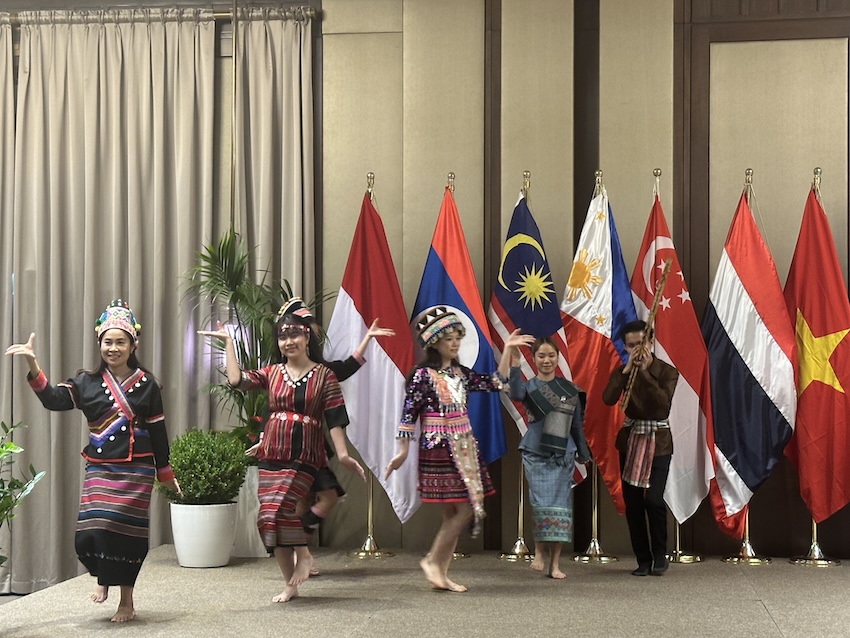
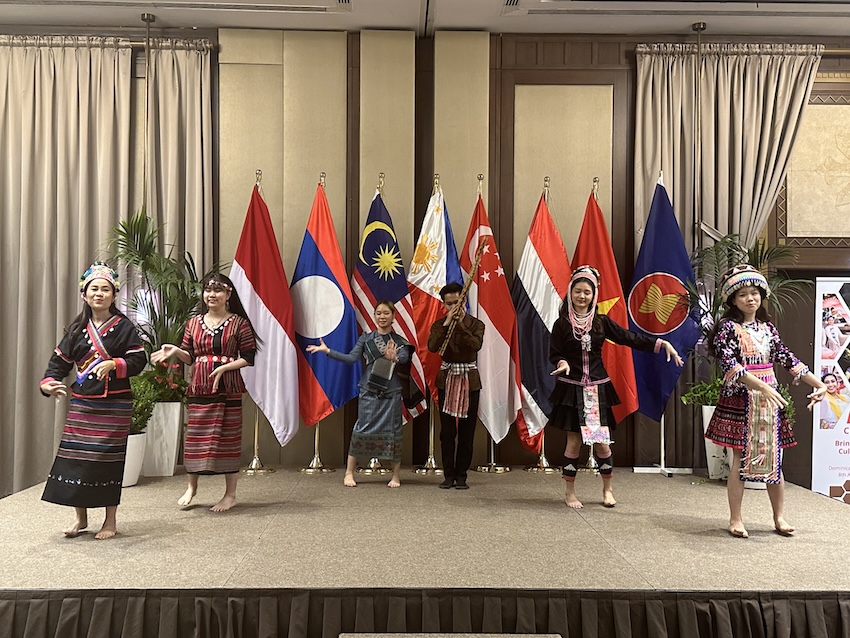
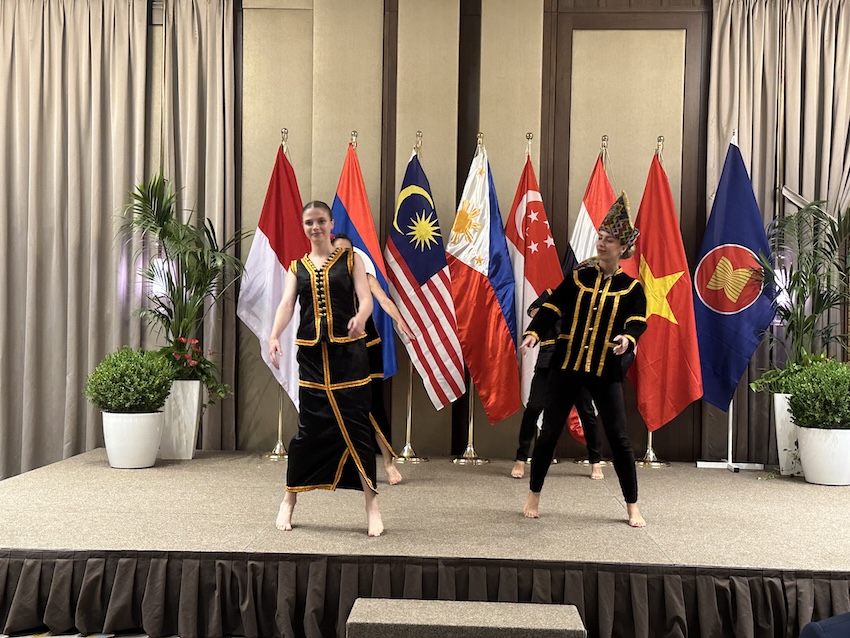
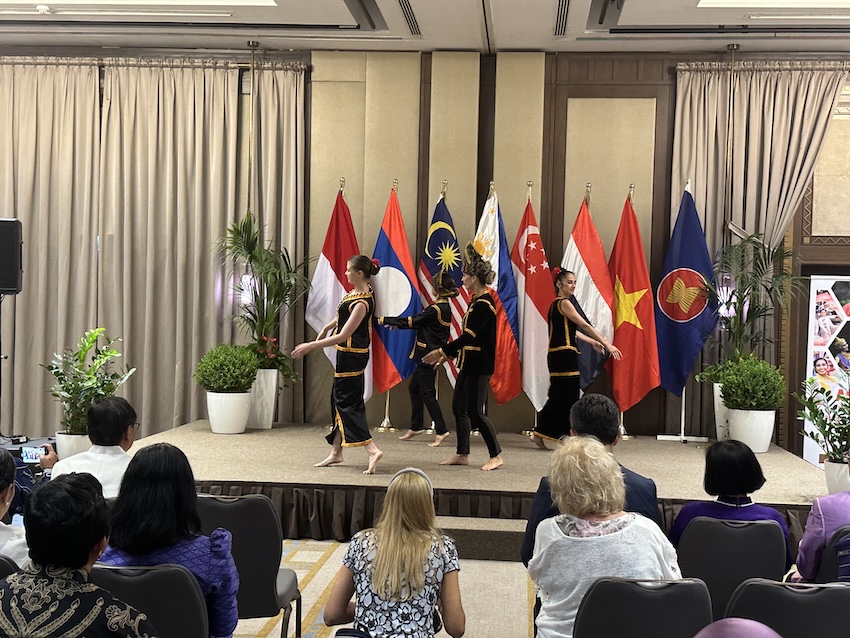
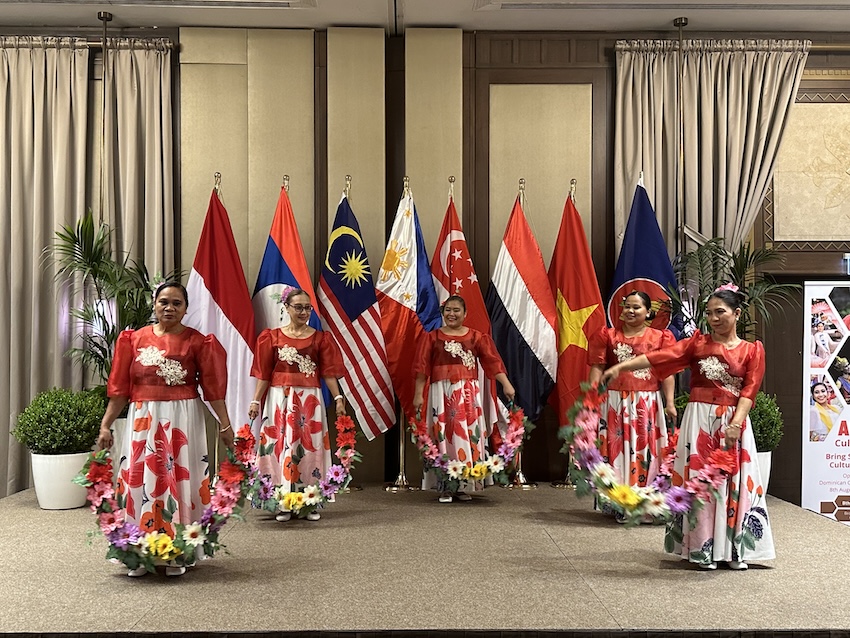
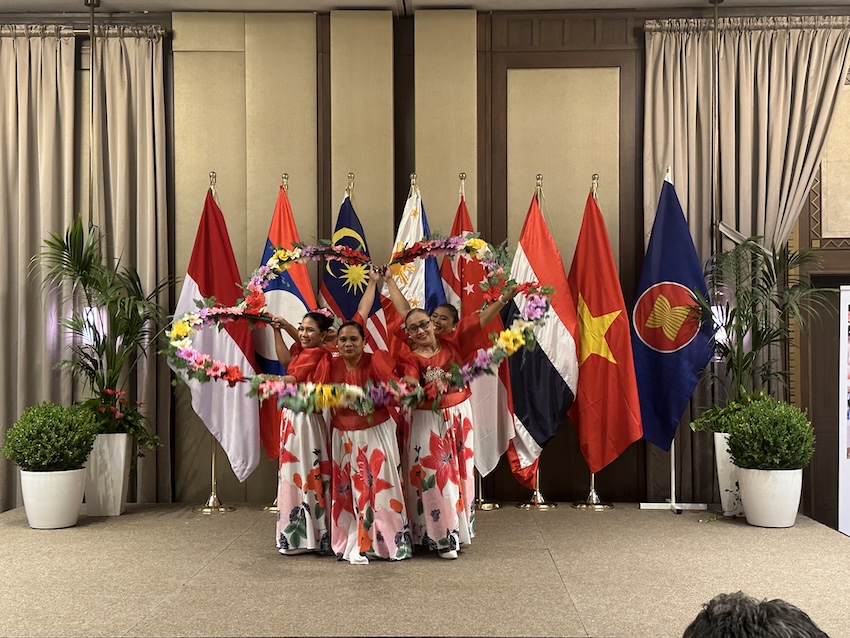
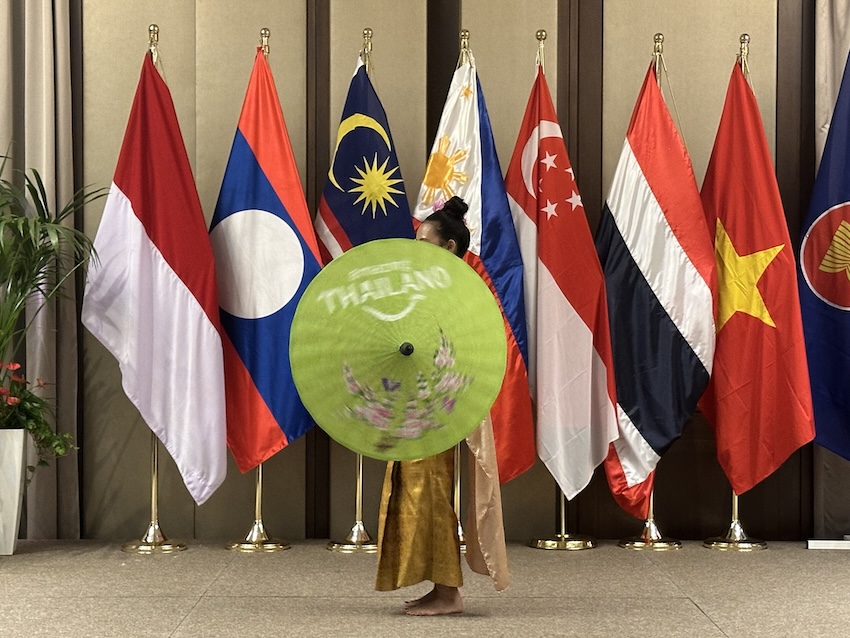
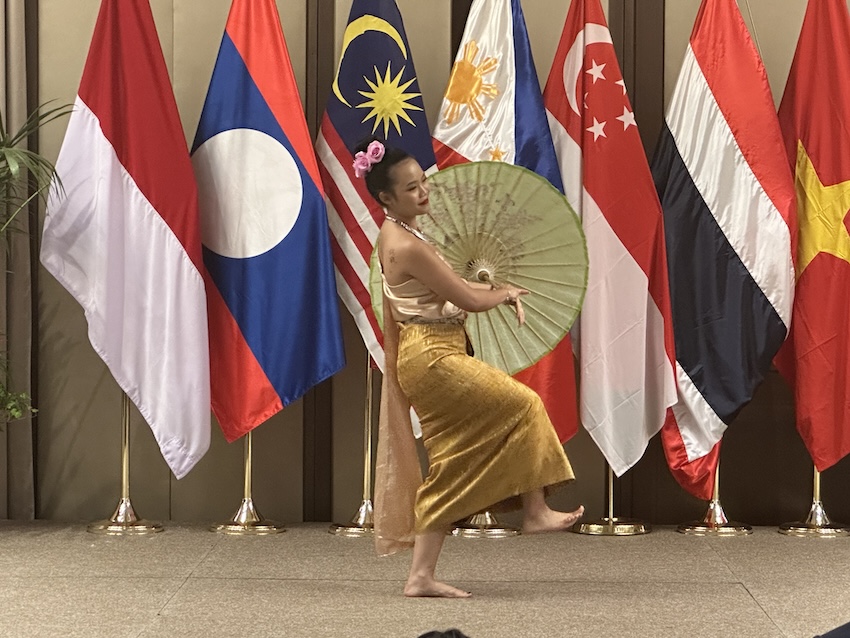
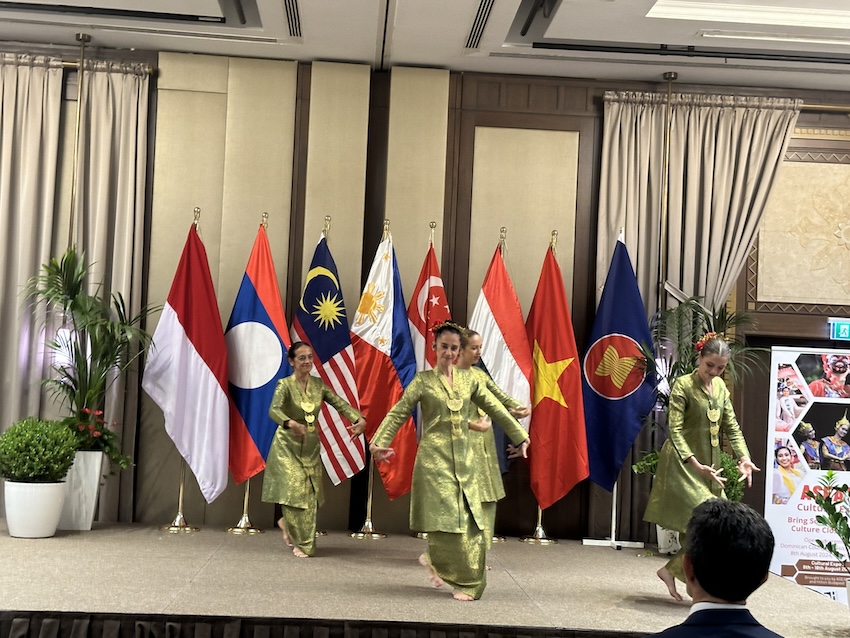
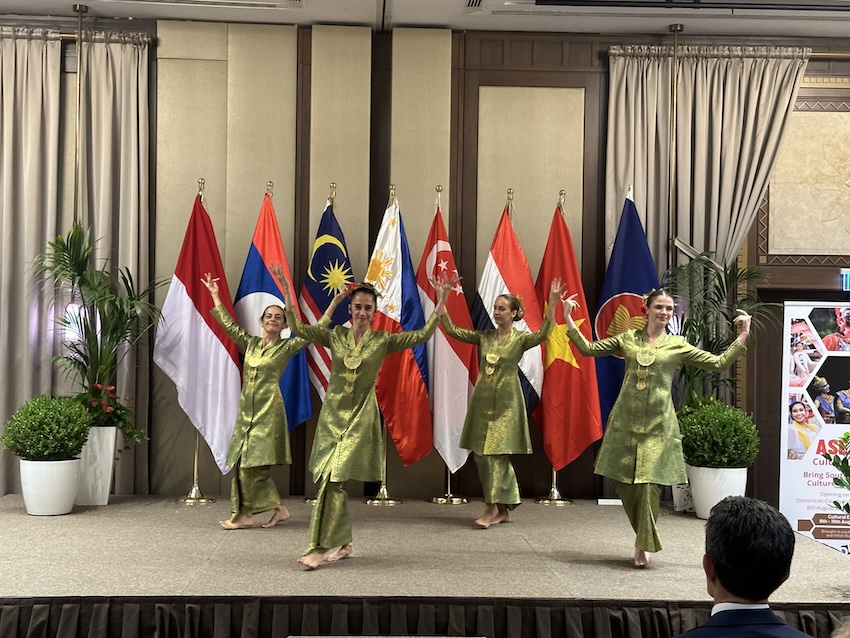
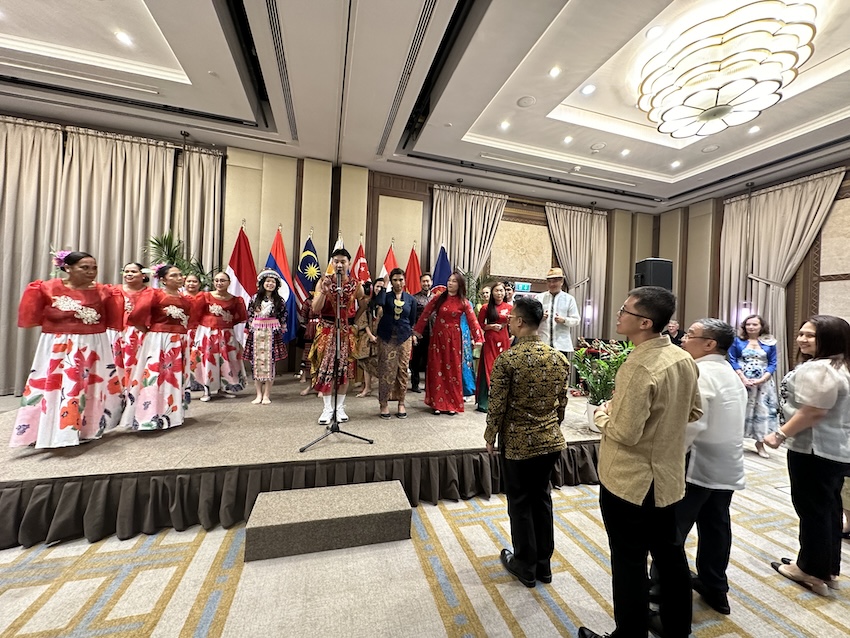
Colourful Cultural Expo of ASEAN Countries
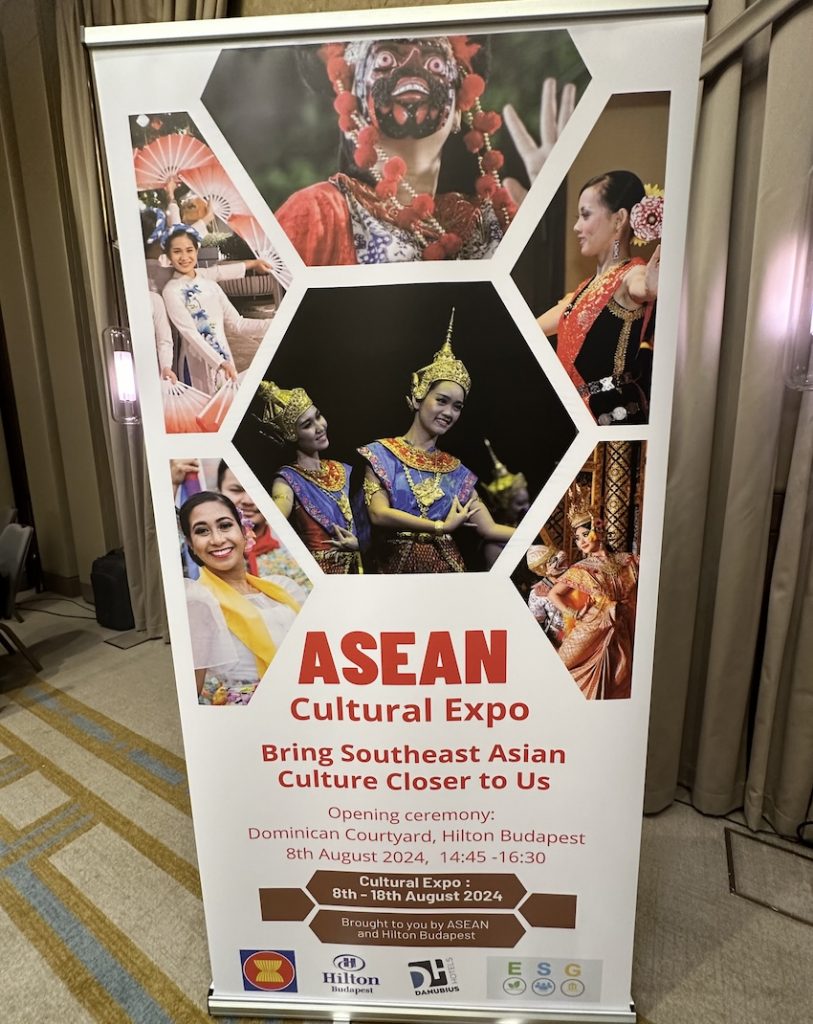
On the occasion of ASEAN Day 2024, the Hilton Budapest hosted the ASEAN Cultural Exhibition in the 13th-century Dominican Cloister, the oldest part of the hotel, located in Buda Castle, a UNESCO World Heritage site.
The invited guests could explore the rich cultural diversity of the ASEAN region, showcasing the heritage of seven Southeast Asian countries: Indonesia, Malaysia, Laos, Viet Nam, the Philippines, Singapore, and Thailand. Open to the public, the exhibition not only highlighted the vibrant culture, unique traditions and heritage of these nations, but also underscored the growing significance of ASEAN countries in the global economic, tourism, and cultural landscapes.
Organised by Hilton Budapest, the event aligned with the company’s ESG (Environmental, Social, and Governance) strategy and reflected the corporate values of Danubius Hotels Zrt., the hotel’s owner. The aim of the exhibition was to promote an ESG-driven culture by encouraging local communities to support initiatives that foster greater understanding and appreciation of cultural diversity.















A reception was held against the backdrop of medieval cloister walls, surrounded by lush greenery, offering breath-taking panoramic views of Budapest – making it an ideal photo spot.
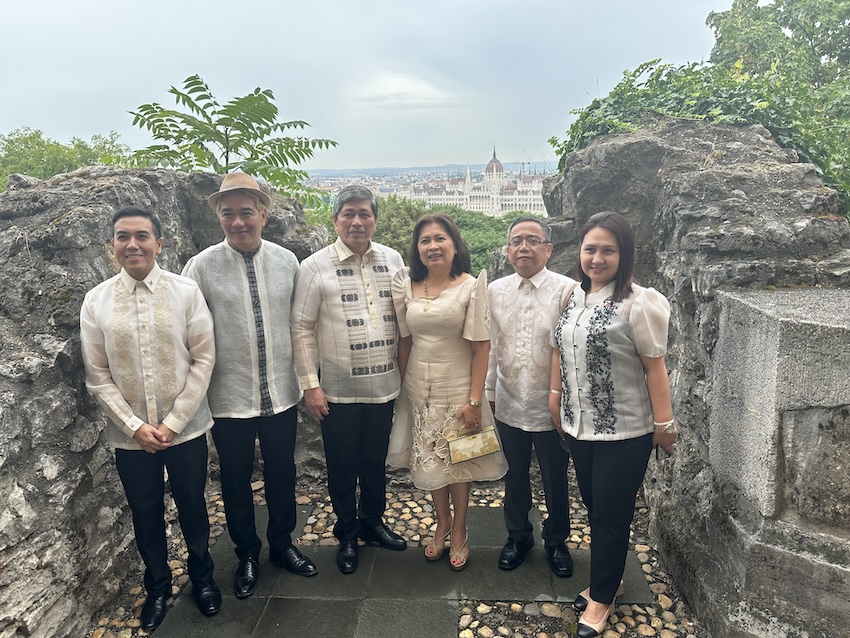
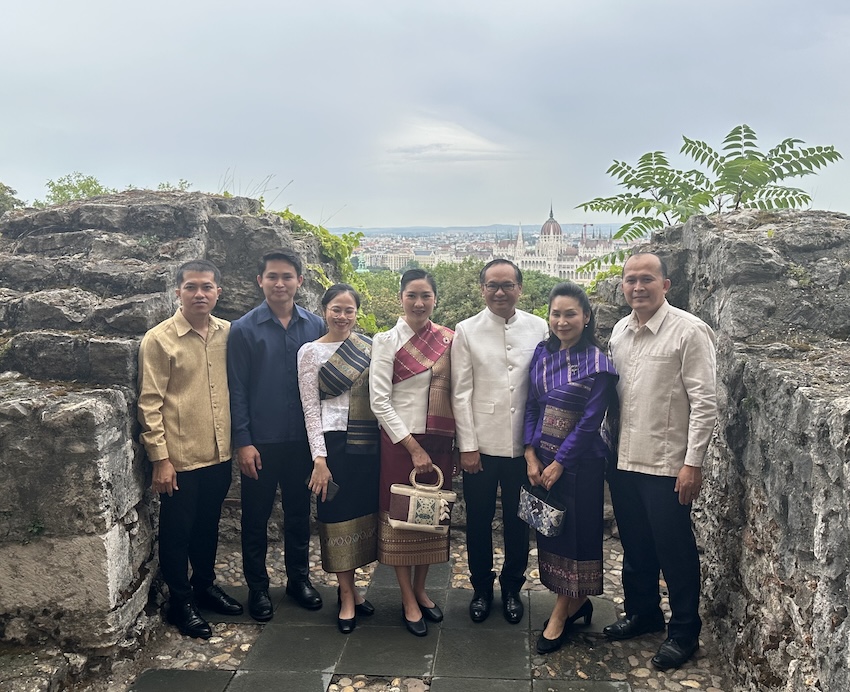
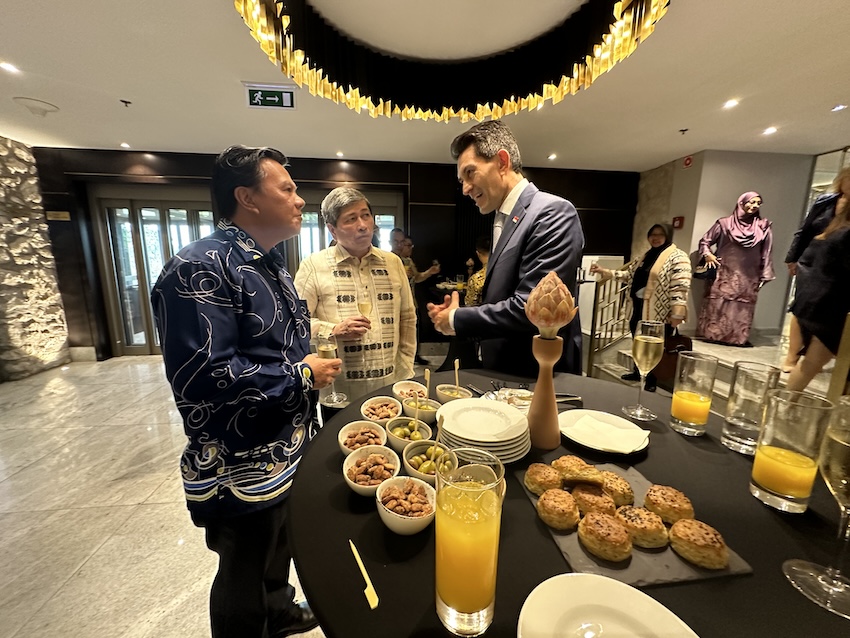
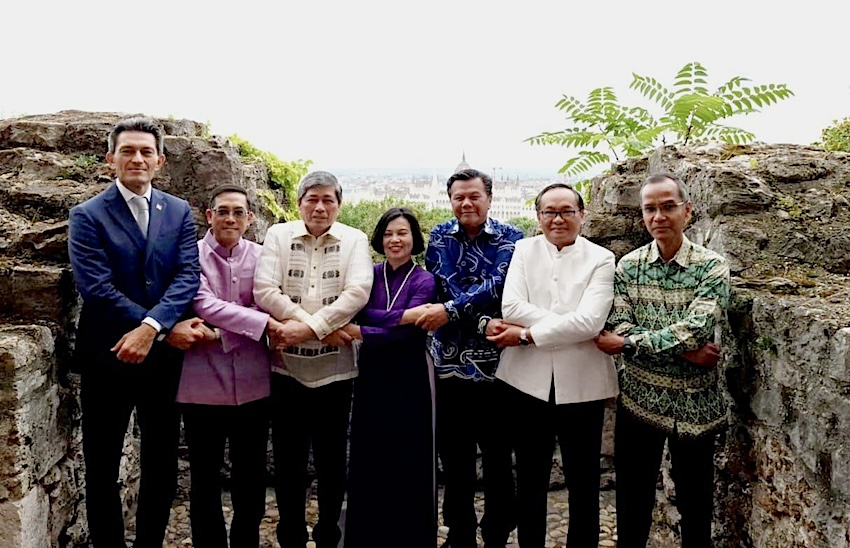
Malaysia to Take Over ASEAN Chairmanship in 2025
On 11 October 2024, the Prime Minister of the Lao People’s Democratic Republic, H.E. Sonexay Siphandone handed over the ASEAN Chairmanship gavel to the Prime Minister of Malaysia, Dato’ Seri Anwar bin Ibrahim in Vientiane. This symbolic act marks Malaysia’s takeover of the ASEAN Chair for the upcoming year, which officially begins on 1 January 2025.
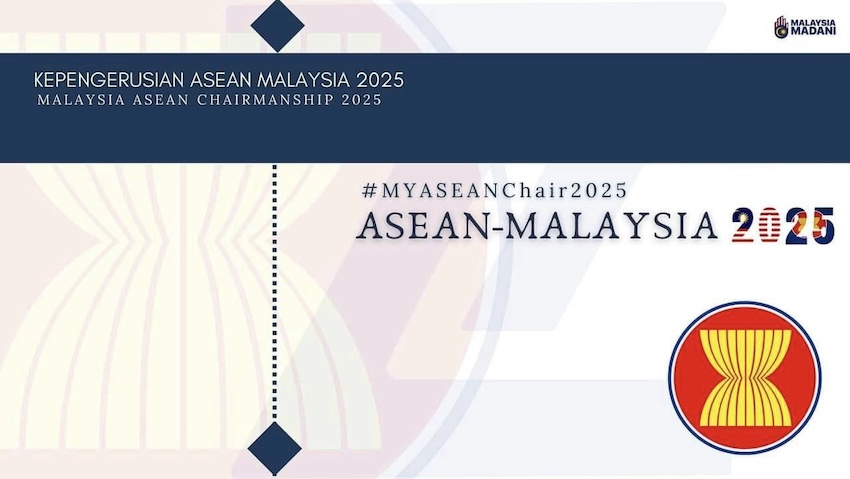
During the ceremony, the official logo and theme for Malaysia’s ASEAN Chairmanship: “Inclusivity and Sustainability” were unveiled.
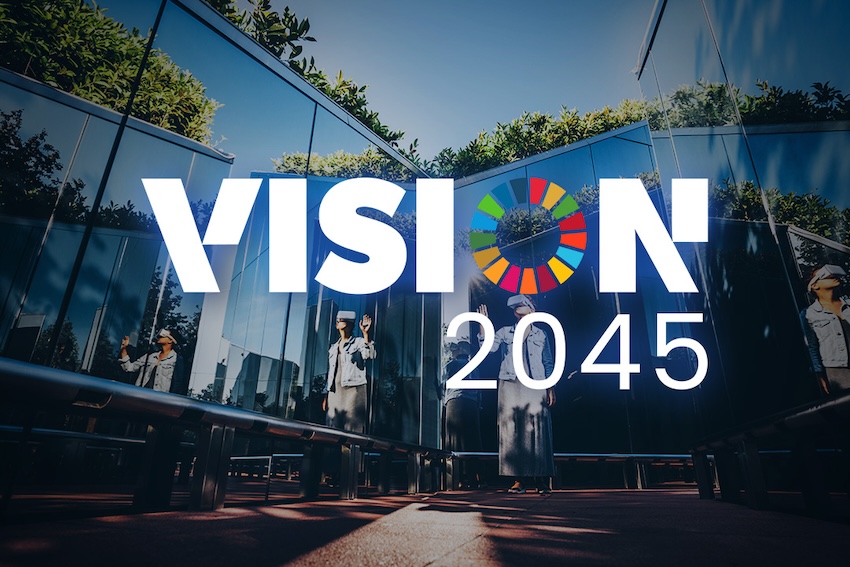
In his address, Prime Minister Anwar expressed Malaysia’s honour in assuming this pivotal role and emphasized the country’s commitment to guiding ASEAN toward greater regional peace, stability, growth and prosperity.
He also highlighted the significance of the year 2025, which will mark the 10th anniversary of the formal establishment of the ASEAN Community. Additionally, he announced that next year ASEAN would adopt the ASEAN Community Vision 2045, charting a prosperous, inclusive, and sustainable shared future for the region over the next two decades.
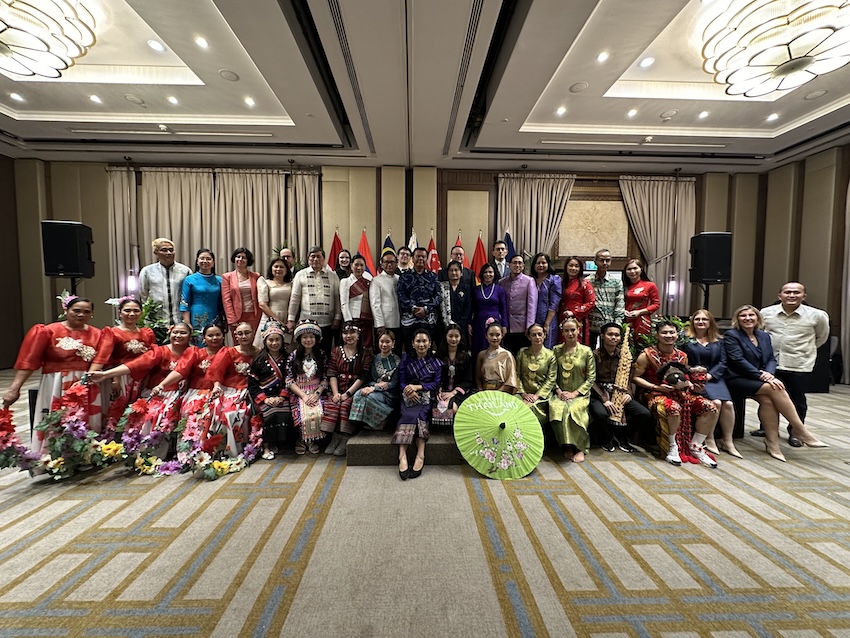
Source: Embassy of Malaysia in Budapest, Hilton Budapest Hotel
Photos by the Embassy of Malaysia in Budapest, and Hilton Budapest Hotel


